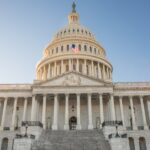
Pharmacist Trade Group Faces Congressional Investigation
A House committee is asking the International Academy of Compounding Pharmacists to discuss its member communications in the wake of a deadly multistate meningitis outbreak.
A deadly outbreak of meningitis tied to a pharmaceutical compounding center has now touched the trade group that represents compounders.
On Friday, the House Energy and Commerce Committee asked the International Academy of Compounding Pharmacists (IACP) for information regarding communications with its members in the wake of the outbreak, traced to the Framingham, Massachusetts-based New England Compounding Center (NECC).
The outbreak, which involved fungal-meningitis-tainted steroid injections distributed by the NECC, has led to 36 reported deaths, according to the Centers for Disease Control and Prevention.
IACP’s tie to the case involves the information it provided to its members after the NECC outbreak became public. A New York Times report in October suggested that the group worked against the Food and Drug Administration’s investigation, with the paper’s Walt Bogdanich and Sabrina Tavernise describing the association’s actions this way: “Instead of encouraging members to help the agency determine if the injectable drug, used to reduce the risk of premature birth, was substandard, the group tutored pharmacists on how to sidestep requests.”
The House committee’s inquiry directly referenced the report: “Allegations that your association may have encouraged compounding pharmacists to attempt to impede the FDA from evaluating the efficacy and safety of their products, if true, raise serious concerns about your actions,” the letter [PDF] states.
IACP plans to comply, though it claimed in a statement that The New York Times report contained false information and “has diverted attention away from the cooperative efforts of the Academy in working to prevent a future tragedy as that caused by NECC and the failure of swift and decisive action by the Massachusetts Board of Registration in Pharmacy and the federal Food and Drug Administration.”
The case has affected other compounders as well. Modern Healthcare reported that three Massachusetts-based firms—OncoMed Pharmaceuticals, Pallimed Solutions Pharmacy, and The Whittier Pharmacists—received cease-and-desist orders from the Massacusetts Department of Public Health in the wake of unannounced inspections that brought up safety concerns.
If your association were facing public scrutiny over its actions, how would you work to ease the challenges to both the association and its industry? Let us know in the comments.
(iStockphoto/Thinkstock)






Comments